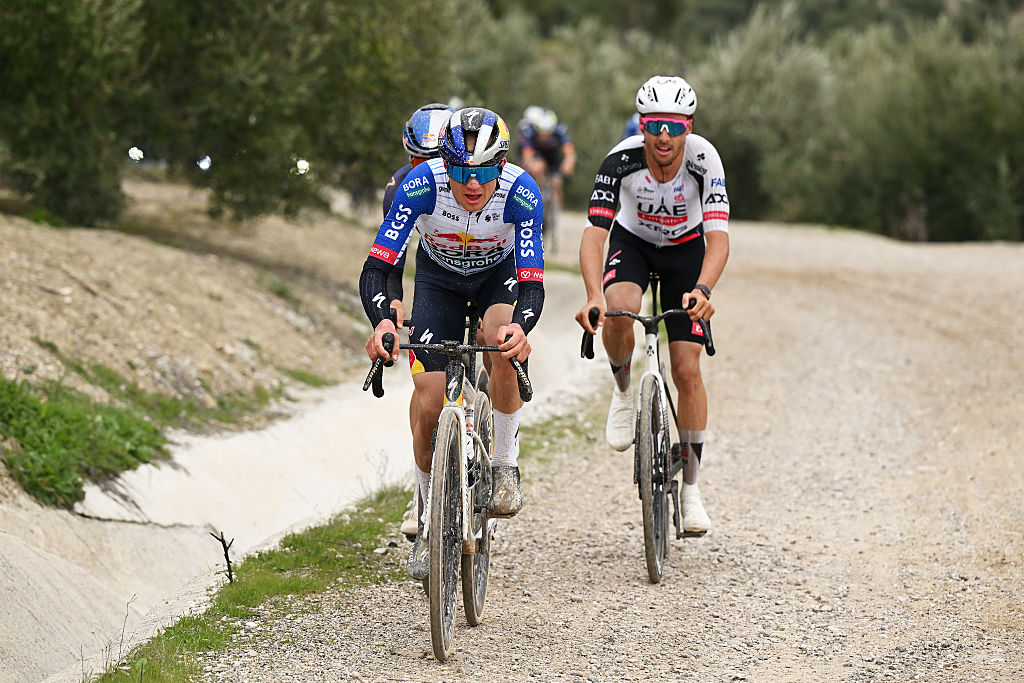Oceania President Gaudry: Effecting change
A baptism of fire six months into Australian's role
The latest race content, interviews, features, reviews and expert buying guides, direct to your inbox!
You are now subscribed
Your newsletter sign-up was successful

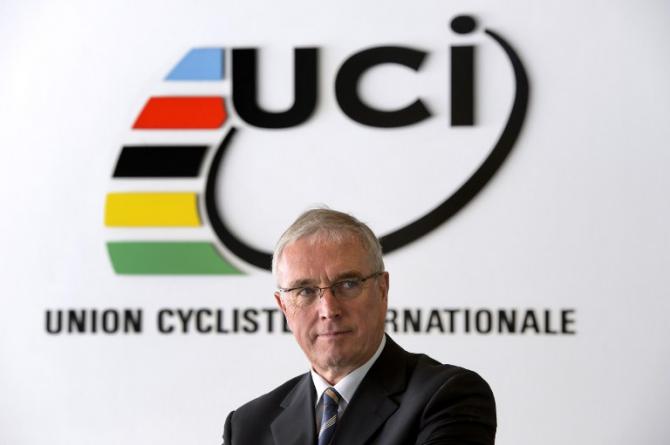
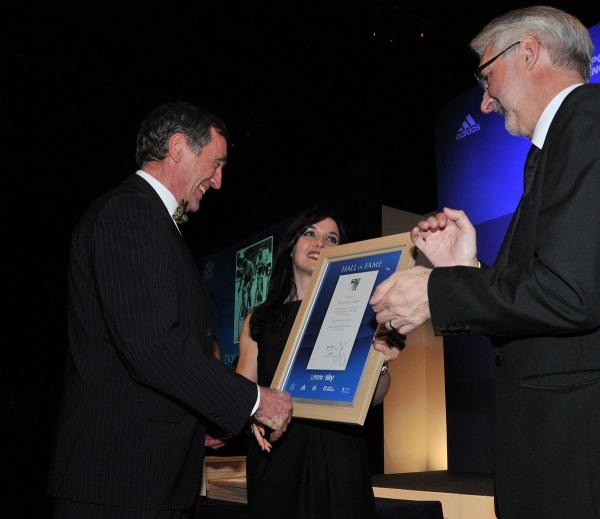
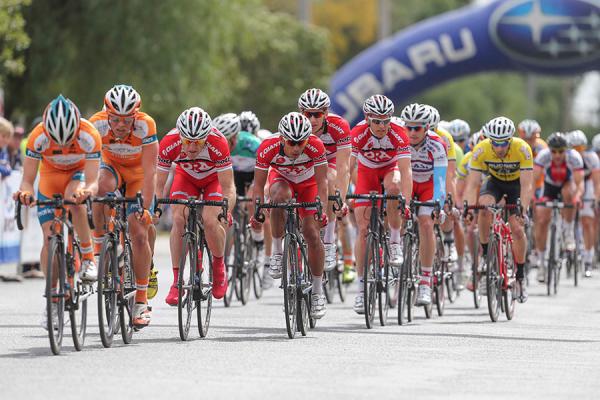
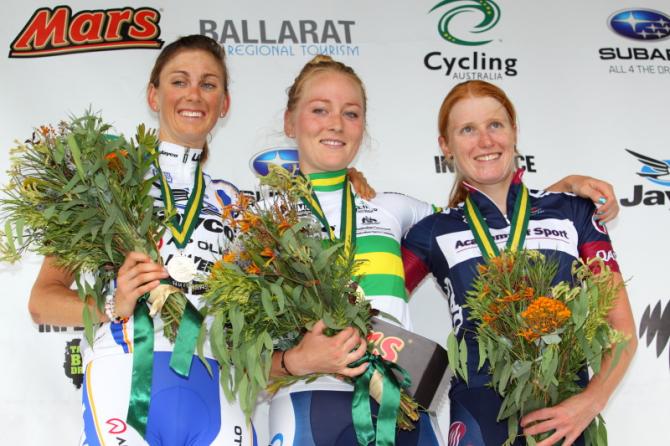
It's six months into Tracey Gaudry's first term as Oceania President. After an initial flurry of media following her election over incumbent Mike Turtur, the spotlight on Gaudry was redirected with the UCI under intense scrutiny as the USADA report fallout continued. Now, with UCI President Pat McQuaid up for re-election later in the year the focus on Gaudry, whose platform was progressive and reformist, is set to intensify once again.
BikeNZ gets $15.6 million in Olympic, Commonwealth Games funding
Tracey Gaudry: A catalyst for change
Under the microscope: Australian National Road Series Part II
Under the microscope: Australian National Road Series Part I
Drapac confirm application for Professional Continental status in 2014
Cairns to host UCI Mountain Bike World Cup
Cookson confirms candidacy for UCI presidency
Cookson's bid for UCI presidency has professional support
Confederacy of Dunces? A look into the UCI presidential election
"Certainly when I was elected it was a pretty intensive period of process to become elected so one's skin thickened considerably over that period of time," Gaudry told Cyclingnews. "And there certainly wasn't a honeymoon."
The time has also coincided with a potentially momentous period in Gaudry's role as CEO of the Amy Gillett Foundation which is currently lobbying for their moniker 'a metre matters' to be legislated across all Australian state and territory governments. The charity has so far championed 'a metre matters' as a behavioural change for motorists – something that every state and territory in Australia, with the exception of ACT and Queensland, already recommended that drivers leave the distance when overtaking cyclists – but that has its limitations.
"It's time to say that the education and awareness in a broader community sense isn't having enough impact on the behaviour of drivers when they're overtaking bike riders," explained Gaudry with the Amy Gillett Foundation aiming for a day when zero bike-related fatalities occur.
Change is on the horizon with a Bill being introduced into New South Wales Parliament – the state which has the worst record for cycling-related fatalities. Queensland will also conduct a parliamentary committee review into its cycling laws with a report due later this year. It would seem a simple measure literally and figuratively, considering that the state of Victoria recommended the legislation back in 2005 and has so far failed to implement it on the basis that it was impractical and hard to enforce, but it's often the most straight forward of matters that prove the most challenging.
"Sometimes that fact that something seems so logical and so simple and so doable is enough for people to say – there must be something wrong," Gaudry admitted, no doubt frustrated by the fact that the passing distance has been legislated overwhelmingly across the United States and Europe. "It can be law before the end of the calendar year. It's about keeping the right pressure on, about keeping consistency."
There's no denying that the two roles require a large sense of responsibility on Gaudry's behalf. Her primary commitment, away from family, the Amy Gillett Foundation along with her role as Oceania President – which she sees in two parts, with Oceania and with the UCI and the Management Committee – "are very complimentary."
The latest race content, interviews, features, reviews and expert buying guides, direct to your inbox!
Changes on the track
There was an air of trepidation when speaking to anyone within Cycling Australia's high performance unit late last year. The sport was under investigation by the Australian Sports Anti-Doping Authority and separately the Federal Government; funds were under threat just as a new Olympic cycle was beginning. Across the ditch in New Zealand, there was nervousness in the wake of performance-based funding cuts. Meantime, changes were taking place on the UCI's track calendar which meant that the outlay required by the two country's federations was potentially going to be under great pressure.
Whereas in the past, athletes would be nominated to attend Track World Cup events which would then serve as a qualifier for World Championships, the UCI brought in a raft of category 1 – 3 events in order to qualify for a World Cup and even then, a ranking system was in place. Two World Cups would earn you enough points to qualify for a World Championships, but there would only be three on the calendar. It was both a complicated and a probably costly measure when the changes were typically Euro-centric. Gaudry had to act, and fast. It was essentially day one.
"We had the points system reviewed on behalf of the Oceania countries, particularly Australia and New Zealand being consistently ranked in the top-three track racing countries in the world," Gaudry explained. "To recognise that yes, we want to compete in more events to globalise track cycling and to regain its popularity but that couldn't be so onerous that two of the top three nations in the world simply couldn't afford to compete."
A look at the points system today reveals something which on first look is a complex set of numbers and requirements.
"It is quite complicated," Gaudry admitted, "but it was even harder six months ago."
Changes to the calendar
The issue of the Oceania calendar and the dwindling number of events, particularly on the road, was a key focus in the lead up to the election. Already, there has been an announcement that Cairns in tropical North Queensland will host Mountain Bike World Cups in 2014 and 2016.
"Clearly Australia is taking a step forward with the UCI in saying 'we want to deliver more world class events down here,'" said Gaudry. "We've secured two Mountain Bike World Cups which is fantastic; there are more on the way. The next step is outside of World Cups and World Championships, we need to re-build the continental calendar."
Over the past six years, everything from regulations, costs, fewer teams and members combined with logistical issues have been blamed for race organisers dropping the UCI classification in a minefield of complaints. In 2012 and 13, just one event was left on the calendar, the New Zealand Cycle Classic and even then there were question marks as to whether it will remain, while it's women's race was scrapped altogether.
Gaudry has been wading through "barriers that have been artificially or formally put in place" and opening a dialogue with all the key stakeholders.
"Often the perceived problems are not real ones," she admitted. "We've got three projects in the mix that hopefully next year we have some inroads but by 2015 we may have a mini Oceania calendar back in this region.
"That includes women's racing and that includes co-ordinating the Asian continental calendar and the Oceania calendar so that you've got Continental teams across both continents racing in a co-ordinated fashion in February / March. Then those Continental teams will have demonstrated their might and will have greater likelihood of being invited to compete in Continental events in the US and in Europe."
What that doesn't entail, is the often-discussed merge of the Oceania and Asian Confederations – at least not now, something that Gaudry maintained as part of her election platform. Collaboration is the starting point with Continental Championships being held as a joint event, given they tend to take place over the same weekend.
The limitations of the Oceania and Asian calendars have been thrust into the spotlight with the news of two of Australia's Continental squads, Huon – Genesys and Drapac planning to move to Professional Continental status in the near future. Drapac could possibly go one step further and register outside of Australia to overcome a perceived lack of support from Cycling Australia. While discussions have taken place between the parties in recent weeks, Gaudry was not at all surprised by the rumblings of discontent.
"I think it reflects the reality, let's be honest," Gaudry said in relation to Drapac's dilemma. "Let me also be quite clear I think a lot of the issues we have is the lack of communication and a lack of dialogue.
"I've met with Continental teams and asked what's behind these decisions that you're making," she explained. "And the fact is, if we had three or four continental events in this region, that's going to give sponsors the return they want. If they could get an entry into a WorldTour event in this region as a wildcard, that would be a sponsor's investment in one go."
With a UCI Management Committee meeting scheduled for next week, Gaudry is calling for the cycling community to let her know what their key issues are and what questions they want answered via the Confederation twitter handle @OceaniaCycling.
Changes to a man's world
Gaudry's election to the Presidency came at a time of growing turmoil in women's cycling and like it or not, she was certainly seen as being someone that could improve conditions for the fairer sex.
"There's no point pretending that there shouldn't be that expectation," Gaudry told Cyclingnews. "It's sad that it is that way but it is what it is. I carry that expectation with a great deal of responsibility."
In Gaudry's ideal world, gender shouldn't be a consideration and she's up-front about that fact.
"Sad but true, gender was not an overt part of my nomination but clearly it is a factor and when you're carrying as part of your person the agenda, the discussion takes place."
Earlier this week, British Cycling president Brian Cookson announced that he is running for the presidency of the UCI, challenging incumbent McQuaid. As part of his platform, Cookson is championing a minimum wage in professional women's cycling, increased participation and to have at least one female UCI Commission President. Gaudry, when asked if the latter point was verging on tokenism, would not go so far as to discredit Cookson's commitment, but there was an element of hesitation.
"I believe, and whether it's idealism, that people should be appointed on the basis of merit," said Gaudry. "We should aspire to an environment where diversity is encouraged, to the point where people can put themselves forward and that they will be able to stand up on their merit. What I know right now is that women don't step forward, because they consider that they won't be reviewed on their merit.
"I'd love to be sitting with more women in that room with more women as my teammates," she admitted. "At the same time, they need to be elected on their own merits."
Gaudry's appointment was viewed as a catalyst for change, a step in the right direction not only for Oceania, and it's clear that the two-time Olympic road cyclist is relishing the challenge of the politically-charged administrative environment. McQuaid is looking for a third term in his role and a battle is brewing between the two candidates.
Gaudry took on the role ready to challenge the system, but at the same time, respect that she's the new player. The Australian won't discuss the candidates and their merits because she does not believe it's her call to make at the present time; her focus purely on representing Oceania with the UCI. However, Gaudry showed no signs of backing down from her original platform suggesting that the McQuaid / Cookson battle for leadership can only bring out the best in both men.
"The fact is, it's time for change at the UCI," Gaudry said. "If we go back to my submission paper… it's time for reform, it's time for a review of the governance and structures and the way that business is done and that also includes that it's time to consider the people in the roles.
"What I will say is that we've had eight years under one leader and democracy and healthy competition is really important," she continued. "This is an opportunity for a serious case of reform to be put forward."
As a sports journalist and producer since 1997, Jane has covered Olympic and Commonwealth Games, rugby league, motorsport, cricket, surfing, triathlon, rugby union, and golf for print, radio, television and online. However her enduring passion has been cycling.
Jane is a former Australian Editor of Cyclingnews from 2011 to 2013 and continues to freelance within the cycling industry.
